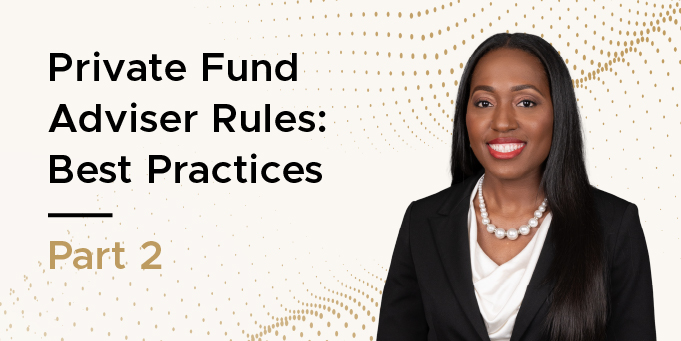
SEC Proposes Rule to Reduce Settlement Time for Securities Transactions
- Published
- Oct 5, 2016
- Share
As anticipated, the SEC has proposed amending Rule 15c6-1(a) of the Securities Exchange Act of 1934 (“Exchange Act”) to shorten the standard settlement cycle from T+3 to T+2 for most broker-dealer transactions. Securities impacted by the rule include equities, corporate bonds, mutual funds, unit investment trusts, exchange traded funds, American depository receipts, and security-based swaps. Options and certain mutual funds that currently trade on a T+2 basis will be unaffected by the rule change.
Drivers behind the proposal include the (a) desire to reduce exposure to credit, market and liquidity risk; (b) reduction of systemic risk amongst U.S. market participants; and (c) technology advances and substantive infrastructure changes. Ever since the SEC reduced transaction settlement time from T+5 to T+3 in 1993, these drivers have gained prominence further justifying the move to T+2.
Another key consideration includes the move to T+2 in non-U.S. securities markets, such as the European Union, Australia and New Zealand. The Commission has issued the standard 60-day notice and comment period, and currently anticipates a compliance date of September 5, 2017 for all industry participants.
In addressing the rule change, the SEC notes that financial market utilities (“FMUs”), such clearing agencies, will be directly impacted by the T+2 change. Other market participants, such as broker-dealers, retail and institutional investors, and custodians, provide match and electronic trade confirmation services and depend significantly on the clearing agency processes.
The SEC has not adopted any other rule changes, but notes the following impact to other related commission rules:
- Regulation SHO: Rule 204 of Regulation SHO requires participants of registered clearing agencies to deliver securities for agency clearing and settlement on a long or short equity security by the settlement date. The shortened settlement cycle will require such participants to close out long and short positions a day faster. For broker-dealers with securities marked as “long”, the rule change will impact the timing in recalling bona fides on such securities.
- Financial Responsibility Rules: Broker-dealers are required to “promptly transfer” funds and “promptly deliver” securities in a shorter time frame under the T+2 rule.
- Confirmation Delivery Requirements: Under Rule 10b-10 of the Exchange Act, broker-dealers will still be required to provide written confirmations to customers “at or before completion” of the transaction, but will now be expected to perform such delivery in less time.
Prior Experience as a Guide
Some European firms experienced significant process reengineering in transitioning to T+2 in 2014. Certain departments within European firms were significantly impacted during the run-up to the compliance deadline in the following ways:
- Operations departments were required to match trades in a shorter time.
- IT systems required adjustments to accommodate changes to coupon and redemption payments and corporate actions, such as dividend payments, stock splits, mergers and acquisitions.
- Compliance policies and procedures required amendments.
- In some cases, manual workarounds were necessary to address data changes.
Firms reviewed resource requirements, particularly on the IT and Operations sides, to ensure they were able to comply with the rule change on the effective date. Also, in the delivery vs. payment system, paying firms needed adjustments to their cash requirements for the counterparties to deliver the securities in a timely manner.
The EisnerAmper Global Compliance & Regulatory Solutions (“GCRS”) team has helped European-based securities firms transition to T+2. GCRS understands the operational impact and can leverage this experience when helping firms comply with the SEC’s shortened settlement cycle requirements. In addition, GCRS will track comments on the proposed rule and issue any updates.
Contact EisnerAmper
If you have any questions, we'd like to hear from you.
Receive the latest business insights, analysis, and perspectives from EisnerAmper professionals.











